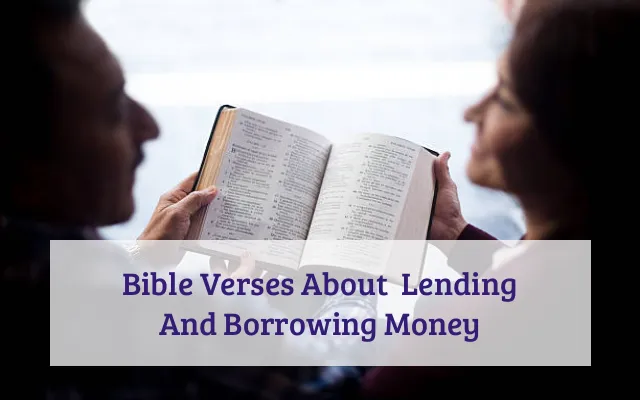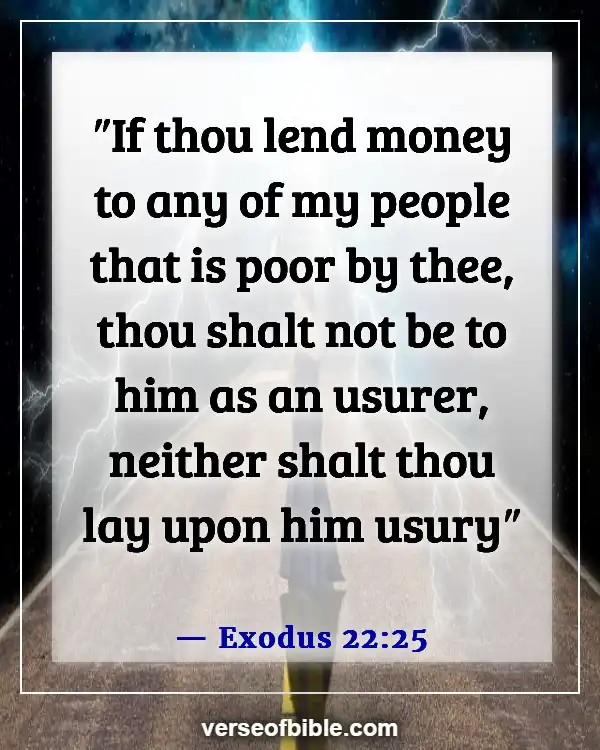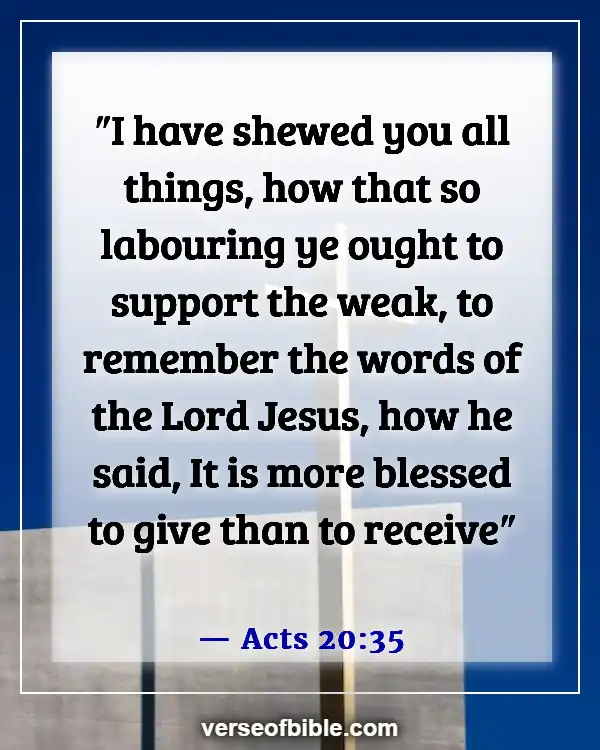Bible Verses About Lending And Borrowing Money

Friends, if you’re seeking guidance on “Lending and Borrowing Money Bible Verses,” this content is for you. Today, I share Bible verses that will help you better understand financial interactions according to Scripture. These passages offer insights into God’s perspective on lending, borrowing, and managing money in relationships. Whether you’re considering a loan or looking to lend to others, these verses will provide biblical wisdom to guide your decisions. Let’s explore what the Bible says about this important aspect of stewardship and community.
Introductions
Dear brothers and sisters, today we’ll explore what the Bible teaches us about lending and borrowing money. This topic is essential for our daily lives and our relationship with God. If you find this message helpful, please share it with others who might benefit.
The Bible offers clear guidance on how we should handle money, including lending and borrowing. God wants us to be wise managers of our resources and to treat others with kindness and fairness in financial matters.
First, the Bible encourages us to be generous and willing to lend to those in need. We are called to help our neighbors and support those facing difficulties. However, we must also use wisdom and discernment when lending money. It’s important to consider the borrower’s ability to repay and their intentions.
When we borrow money, we have a responsibility to repay it promptly. The Bible teaches that failing to repay what we owe is wrong and can damage our relationships and reputation. We should be careful not to take on more debt than we can handle and always strive to keep our promises.
The Bible also warns against charging excessive interest, especially to the poor. God cares deeply for those in need and expects us to show compassion in our financial dealings. While it’s not wrong to charge reasonable interest, we must be careful not to take advantage of others for personal gain.
In the Old Testament, we see examples of God’s instructions regarding lending and borrowing. He established laws to protect both lenders and borrowers, ensuring fair treatment for all. These principles still apply to us today, reminding us to act with integrity in our financial transactions.
Jesus also spoke about money matters in His teachings. He encouraged His followers to lend without expecting anything in return, emphasizing the importance of generosity and trust in God’s provision.
As Christians, we should approach lending and borrowing with prayer and wisdom. We must seek God’s guidance in our financial decisions and always prioritize our relationship with Him over material wealth.
Dear friends, now let’s see the Bible scriptures below that talk about lending and borrowing money.
Bible Verses About Lending And Borrowing Money
“Thou shalt not lend upon usury to thy brother; usury of money, usury of victuals, usury of any thing that is lent upon usuryUnto a stranger thou mayest lend upon usury; but unto thy brother thou shalt not lend upon usury: that the Lord thy God may bless thee in all that thou settest thine hand to in the land whither thou goest to possess it”— Deuteronomy 23:19-20
“When thou dost lend thy brother any thing, thou shalt not go into his house to fetch his pledgeThou shalt stand abroad, the man to whom thou dost lend shall bring out the pledge abroad unto theeAnd if the man be poor, thou shalt not sleep with his pledgeIn any case thou shalt deliver him the pledge again when the sun goeth down, that he may sleep in his own raiment, bless thee: it shall be righteousness unto thee before the Lord thy God”— Deuteronomy 24:10-13

“If a man borrow ought of his neighbour, it be hurt, or die, the owner thereof being not with it, he shall surely make it good”— Exodus 22:14

“If thou lend money to any of my people that is poor by thee, thou shalt not be to him as an usurer, neither shalt thou lay upon him usury”— Exodus 22:25
“If thy brother be waxen poor, fallen in decay with thee; then thou shalt relieve him: yea, though he be a stranger, or a sojourner; that he may live with theeTake thou no usury of him, or increase: but fear thy God; that thy brother may live with theeThou shalt not give him thy money upon usury, nor lend him thy victuals for increase”— Leviticus 25:35-37

“He that is surety for a stranger shall smart for it: he that hateth suretiship is sure”— Proverbs 11:15

“He that oppresseth the poor reproacheth his Maker: but he that honoureth him hath mercy on the poor”— Proverbs 14:31
“A man void of understanding striketh hands, becometh surety in the presence of his friend”— Proverbs 17:18

“He that hath pity upon the poor lendeth unto the Lord ; that which he hath given will he pay him again”— Proverbs 19:17
“Take his garment that is surety for a stranger: take a pledge of him for a strange woman”— Proverbs 20:16

“Whoso stoppeth his ears at the cry of the poor, he also shall cry himself, but shall not be heard”— Proverbs 21:13
“Be not thou one of them that strike hands, or of them that are sureties for debtsIf thou hast nothing to pay, why should he take away thy bed from under thee?”— Proverbs 22:26-27

“He that by usury unjust gain increaseth his substance, he shall gather it for him that will pity the poor”— Proverbs 28:8

“Withhold not good from them to whom it is due, when it is in the power of thine hand to do itSay not unto thy neighbour, Go, come again, to morrow I will give; when thou hast it by thee”— Proverbs 3:27-28
“My son, if thou be surety for thy friend, if thou hast stricken thy hand with a strangerThou art snared with the words of thy mouth, thou art taken with the words of thy mouthDo this now, my son, deliver thyself, when thou art come into the hand of thy friend; go, humble thyself, make sure thy friendGive not sleep to thine eyes, nor slumber to thine eyelidsDeliver thyself as a roe from the hand of the hunter, as a bird from the hand of the fowler”— Proverbs 6:1-5

“A good man sheweth favour, lendeth: he will guide his affairs with discretion”— Psalm 112:5
“He is ever merciful, lendeth; his seed is blessed”— Psalm 37:26

“Sell that ye have, give alms; provide yourselves bags which wax not old, a treasure in the heavens that faileth not, where no thief approacheth, neither moth corrupteth”— Luke 12:33

“If therefore ye have not been faithful in the unrighteous mammon, who will commit to your trust the true riches?”— Luke 16:11

“He answereth saith unto them, He that hath two coats, let him impart to him that hath none; he that hath meat, let him do likewise”— Luke 3:11
“If ye lend to them of whom ye hope to receive, what thank have ye? for sinners also lend to sinners, to receive as much againBut love ye your enemies, do good, lend, hoping for nothing again; your reward shall be great, ye shall be the children of the Highest: for he is kind unto the unthankful to the evil”— Luke 6:34-35
“There was a certain creditor which had two debtors: the one owed five hundred pence, the other fiftyAnd when they had nothing to pay, he frankly forgave them both. Tell me therefore, which of them will love him most?Simon answered said, I suppose that he, to whom he forgave most. he said unto him, Thou hast rightly judged”— Luke 7:41-43
“Therefore is the kingdom of heaven likened unto a certain king, which would take account of his servantsAnd when he had begun to reckon, one was brought unto him, which owed him ten thousand talentsBut forasmuch as he had not to pay, his lord commanded him to be sold, his wife, children, all that he had, payment to be madeThe servant therefore fell down, worshipped him, saying, Lord, have patience with me, I will pay thee allThen the lord of that servant was moved with compassion, loosed him, forgave him the debtBut the same servant went out, found one of his fellowservants, which owed him an hundred pence: he laid hands on him, took him by the throat, saying, Pay me that thou owestAnd his fellowservant fell down at his feet, besought him, saying, Have patience with me, I will pay thee allAnd he would not: but went cast him into prison, till he should pay the debtSo when his fellowservants saw what was done, they were very sorry, came told unto their lord all that was doneThen his lord, after that he had called him, said unto him, O thou wicked servant, I forgave thee all that debt, because thou desiredst meShouldest not thou also have had compassion on thy fellowservant, even as I had pity on thee?his lord was wroth, delivered him to the tormentors, till he should pay all that was due unto himSo likewise shall my heavenly Father do also unto you, if ye from your hearts forgive not every one his brother their trespasses”— Matthew 18:23-35

“Give to him that asketh thee, from him that would borrow of thee turn not thou away”— Matthew 5:42

“No man can serve two masters: for either he will hate the one, love the other; or else he will hold to the one, despise the other. Ye cannot serve God mammon”— Matthew 6:24
“Then I consulted with myself, I rebuked the nobles, the rulers, said unto them, Ye exact usury, every one of his brother. I set a great assembly against them”— Nehemiah 5:7
“Hath given forth upon usury, hath taken increase: shall he then live? he shall not live: he hath done all these abominations; he shall surely die; his blood shall be upon him”— Ezekiel 18:13

“That hath taken off his hand from the poor, that hath not received usury nor increase, hath executed my judgments, hath walked in my statutes; he shall not die for the iniquity of his father, he shall surely live”— Ezekiel 18:17
“In thee have they taken gifts to shed blood; thou hast taken usury increase, thou hast greedily gained of thy neighbours by extortion, hast forgotten me, saith the Lord God”— Ezekiel 22:12

“Distributing to the necessity of saints; given to hospitality”— Romans 12:13

“Owe no man any thing, but to love one another: for he that loveth another hath fulfilled the law”— Romans 13:8

“Bear ye one another’s burdens, so fulfil the law of Christ”— Galatians 6:2

“If a brother or sister be naked, destitute of daily foodAnd one of you say unto them, Depart in peace, be ye warmed filled; notwithstanding ye give them not those things which are needful to the body; what doth it profit?”— James 2:15-16

“Let your conversation be without covetousness; be content with such things as ye have: for he hath said, I will never leave thee, nor forsake thee”— Hebrews 13:5

“I have shewed you all things, how that so labouring ye ought to support the weak, to remember the words of the Lord Jesus, how he said, It is more blessed to give than to receive”— Acts 20:35
“Neither was there any among them that lacked: for as many as were possessors of lands or houses sold them, brought the prices of the things that were soldAnd laid them down at the apostles’ feet: distribution was made unto every man according as he had need”— Acts 4:34-35

“But my God shall supply all your need according to his riches in glory by Christ Jesus”— Philippians 4:19
“If I have withheld the poor from their desire, or have caused the eyes of the widow to failOr have eaten my morsel myself alone, the fatherless hath not eaten thereof(For from my youth he was brought up with me, as with a father, I have guided her from my mother’s womb;)If I have seen any perish for want of clothing, or any poor without coveringIf his loins have not blessed me, if he were not warmed with the fleece of my sheepIf I have lifted up my hand against the fatherless, when I saw my help in the gateThen let mine arm fall from my shoulder blade, mine arm be broken from the boneFor destruction from God was a terror to me, by reason of his highness I could not endure”— Job 31:16-23

“If thou draw out thy soul to the hungry, satisfy the afflicted soul; then shall thy light rise in obscurity, thy darkness be as the noon day”— Isaiah 58:10
Conclusion
In conclusion, the Bible provides valuable guidance on lending and borrowing money, emphasizing principles of generosity, responsibility, and wisdom. These teachings encourage us to be compassionate towards those in need, lending without expecting anything in return. At the same time, they caution against the dangers of debt and the importance of repaying what we owe.
To apply these lessons in our lives, we should approach financial matters with careful consideration and prayer. When lending, we should do so with a spirit of generosity and without exploiting others. As borrowers, we must be responsible and honor our commitments. It’s crucial to live within our means and avoid unnecessary debt.
Overall, these biblical principles remind us that our financial decisions have spiritual implications. By following these teachings, we can cultivate a healthy relationship with money, demonstrate love for our neighbors, and ultimately honor God with our resources. This approach leads to financial stability, stronger communities, and a life aligned with biblical values.
More Bible Topics
- Bible Verses About Remembering The Past
- Bible Verses To Make You Happy
- Bible Verses About Being Ready For The Second Coming
- Scriptures On Knowing God Intimately
- God Has A Purpose For Your Life Bible Verses
- Pastor Appreciation Bible Verses To Honor Pastors
- Bible Verses About Guarding Your Eyes
- Bible Verses About The Heart Of A Woman
- Bible Verses About Changing Your Mindset